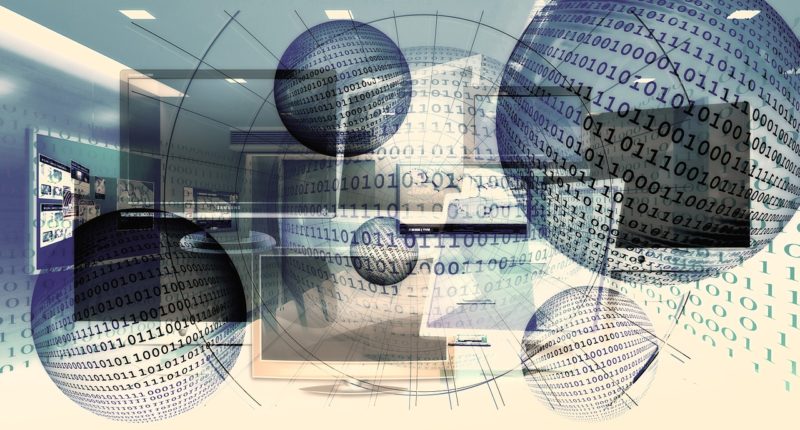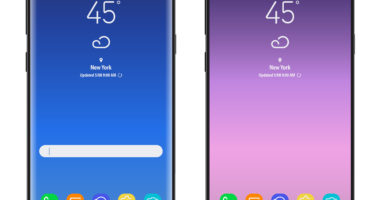Technology will not be able to avoid the onset of a pandemic; nevertheless, it can assist in managing a crisis more effectively. We all know how badly COVID-19 has impacted our lives, both personal and professional. During this time of sheer uncertainty and constant fear, our willingness to adopt technology has been our lifeline.
Let’s take a look at how technology has impacted our lives in the current COVID-19 pandemic.
1. Distance Learning
According to a recent survey, around 191 countries have either implemented or announced the closure of schools and universities, which has directly impacted close to 1.57 billion students. Most of the educational institutions have started to offer their courses online to make sure education is not disrupted due to the pandemic. Technologies used in distant learning include augmented reality, 3D printing, virtual reality, and robot teachers enabled with artificial intelligence.
2. Online Entertainment
COVID-19 has completely transitioned how content is being generated, distributed, and streamed. Online streaming of live shows and concerts have gained traction across the world. Several film production companies have also been releasing their movies via Over The Top (OTT) platforms such as Amazon Prime Video, Hotstar, Netflix, Zee5, Voot Select, etc. OTT caters to varied interests of people across the globe with the perennial additions of diverse content.
The lockdown has helped people in realising the ease of viewing content on OTT platforms; it has changed how people are consuming content on a day-to-day basis. OTT platforms have witnessed a significant rise in both app downloads and viewership during the lockdown period.
Many gaming platforms have witnessed substantial growth in their user base. There has been a significant spike in the gaming sector’s sales and the duration for which the games are being played. People are using gaming as an option to deal with COVID-19 stress.
3. Contact Tracing Applications
Contact tracing apps like Aarogya Setu have assisted in tracking the COVID-19 spread. Technology has also helped in educating people about the entire situation and reminding them to take the necessary precautions. Telecom operators such as BSNL, Jio, Airtel, etc. have used caller tunes for spreading awareness about the pandemic.
The facial recognition technology has helped in identifying people accurately even when they are wearing a mask. Technology has also helped in monitoring the movement of quarantined people. CCTV cameras which are enabled with facial recognition feature have helped in identifying infected individuals who do not follow the rules and step out of their homes despite being quarantined.
4. Stock Market
The adoption of technology in the stock market industry has been quite good for brokerage firms. Several brokerage companies have seen a spike in the number of clients since more investors have decided to tap the stock market. Due to the pandemic, clients are mostly staying indoors and are getting more free time to access the market situation, thereby also leading to an increase in trading volumes.
5. Contactless Online Deliveries
The online grocery market witnessed tremendous growth during the pandemic due to the soaring demand amongst consumers. Families, particularly with children and older people, preferred to place their grocery orders online. This, in turn, resulted in a significant increase of new users who are resorting to online apps for grocery deliveries. The provision given to choose a preferred time slot for delivery plus a reduced delivery fee for orders above a specified amount is attracting more and more customers towards online delivery business models.
Also Read: Are COVID-19 Contact Tracing Apps as Effective as They Claim?
6. Robotics
COVID-19 has made us realise how meaningful human interactions are for making things work. The pandemic has severely impacted labour-intensive sectors such as food, retail, logistics, and manufacturing businesses. COVID-19 has resulted in a strong push to implement the usage of robots and also to speed up the robotics research. Robots are now being used to clean infected areas and for delivering food to quarantined individuals.
The count of COVID-19 cases is increasing rapidly, and the number of patients who need medical attention is putting extraordinary pressure on healthcare professionals across the world. In a few countries, remote-controlled robots are being used for helping medical professionals to conduct critical tasks such as mouth swab collection for conducting the virus detection test, for conducting ultrasound scans, etc.
Drones are being used for food deliveries, tracking population, transporting test kits, spraying disinfectant, and for delivering medicines to quarantine areas, etc.
7. Dissemination of Information
Companies such as Google, Facebook, are striving hard to ensure people get only accurate and verified information. Their objective is to make accurate information accessible to everyone so that there is complete transparency of the entire scenario, and people can be educated about the required steps to undertake well in advance.
False information around the number of COVID-19 cases, vaccines, diagnosis and treatment options, medicines, government measures, etc., can create more panic among the population. The anxiety of people could result in widespread chaos, hoarding of essential items, panic buying, increased rates, conspiracy theories, etc.
8. Fitness & Health Apps
New alternatives are being introduced by health and fitness apps to help people remain fit at the comfort of staying indoors due to the pandemic situation. Several fitness and health brands have started conducting live workout sessions on their apps and social media platforms. These initiatives have also seen decent traction.
9. Technology-Based Temperature Monitoring
Infrared and wireless thermometers have now become the most commonly used medical equipment at toll gates, entry and exit gates of offices, airports, shopping malls, hotels, railway stations, shops, hospitals, and other public places. These temperature monitoring technologies have assisted in measuring the body temperature of individuals from a distance; these temperature measuring devices have also been useful in identifying the individuals who might need further investigation.
10. Work From Home (WFH)
The work from home option has ensured business continuity for various companies and businesses. Internet, data privacy security, virtual meetings, cloud conferencing, etc. have assisted professionals in adapting themselves to work from the home scenario with ease. WFH has also ensured that the deliverables are not delayed. Remote working has been a blessing in disguise, which has helped us to a great extent to maintain and follow social distancing protocols.
A Final Note
COVID-19 has proved that technology innovations have been helping in managing the epidemic in a timely, systematic, and calm manner. A lesson learnt from the COVID-19 pandemic has been to stay prepared well in advance against any crisis at both an individual and collective level. All we need to fight an epidemic like COVID-19 is preparedness. Advancement in technology is steadily progressing; it will undoubtedly continue to grow exponentially. It’s we humans who have to adapt to changes in technology faster and continue to invest in building the technology systems for better preparedness.
For any clarifications/feedback on the topic, please contact the writer at bhavana.pn@cleartax.in
Bhavana is a Senior Content Writer handling the GST vertical. She is committed, professional, and has a flair for writing. When away from work, she enjoys watching movies and playing with her son. One thing she can’t resist is SHOPPING! Her favourite quote is: “Luck is what happens when preparation meets opportunity”.





